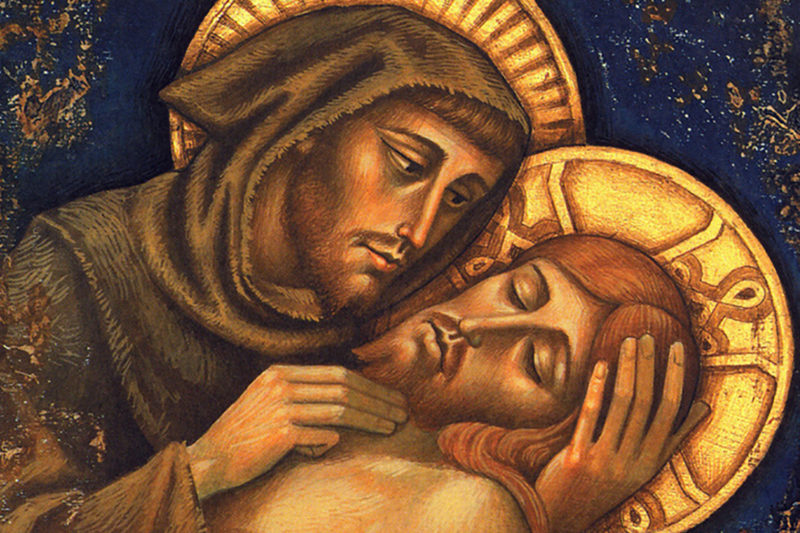Saint Bonaventure
In his book “The Soul’s Journey into God” [1259] also known as “The Mind’s Road to God” Saint Bonaventure tells us that the “eyes of our souls” should be opened and enlightened so “to guide our feet in the way of that peace which surpasses all understanding”.
Within the book’s opening chapter we become aware that to undertake this journey we must first know who we are within Creation “to be led in the path of God we must also enter into our soul, which is in God’s image, everlasting, spiritual within us … this means to enter into the truth of God … to rejoice in the knowledge of God and in reverent fear of His majesty” or as Psalm 85:11 explains we look up to God and He looks down upon us “Faithfulness will spring up from the ground, and righteousness will look down from the sky.” To journey into God and to find Christian wisdom we need to know how to love Him with “our whole mind, with our whole heart and with our whole soul” [Mk 12:30, Mt 22:37; Lk 10:27].
St Bonaventure then divides his book into six stages of the Soul’s pilgrimage “just as God completed the whole world in six days and rested on the seventh, so the smaller man of the world is led by six successive stages of illumination to the quiet of contemplation.” Within the pages he tells us that:
God is seen through, and in, His Traces
God is seen through, and in, His Image
God is seen through, and in, His Being
We can find God through Mystical and Mental Ravishment or Enlightenment
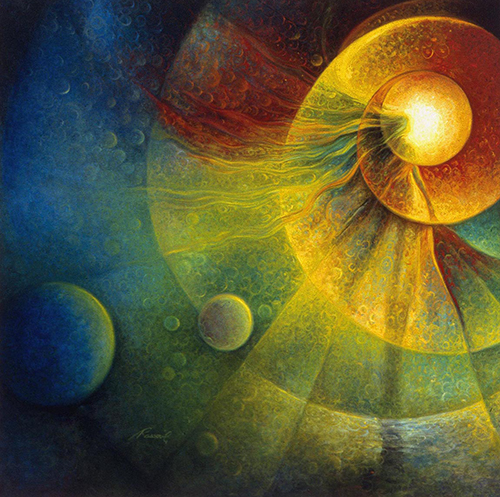
Days One & Two : Creation
When looking at the first days of the journey Bonaventure talks about God’s creative expression “the divine power that produces all things from nothing, the divine wisdom that clearly distinguishes all things and the divine goodness that lavishly adorns all things” Bonaventure’s focus is on the beauty, fullness and activity of all things created. He explains that Creation is about God’s sublimity, dignity and immense goodness and that it’s where we see reflections, vestiges [traces] and the likeness of God. Perhaps whilst writing this St Bonaventure considered the opening words of Francis in his Canticle of the Creatures where the beauty and wonder of His Creation is because of, and for, Christ represented in the canticle as Brother Sun:
Most High, all-powerful, good Lord,
Yours are the praises, the glory, and the honour, and all blessing,
To You alone, Most High, do they belong,
and no human is worthy to mention Your name.
Praised be You, my Lord, with all Your creatures,
especially Sir Brother Sun,
Who is the day and through whom You give us light.
And he is beautiful and radiant with great splendour;
and bears a likeness of You, Most High One.
Of Creation Bonaventure advises:
Whoever, therefore, is not enlightened by such splendour of created things is blind;
whoever is not awakened by such outcries is deaf;
whoever does not praise God because of these effects is dumb;
whoever does not discover the First Principle1 from such clear signs is a fool.
Therefore open your eyes, alter the ears of your spirit,
open your lips and apply your heart
so that in all creatures you may
see, hear, praise and worship, glorify and honour
your God.1The First Principle of The Divine Trinity
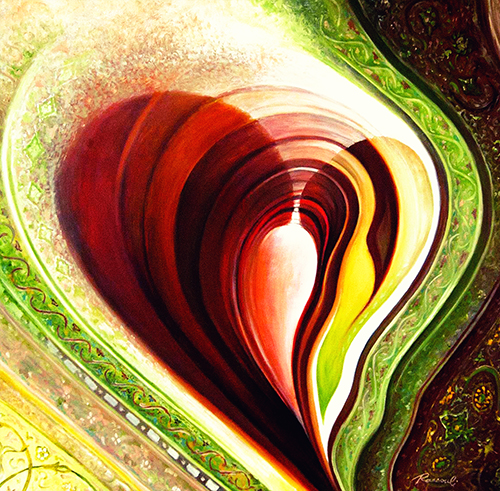
Creation Reflects God’s Goodness to Us
Creation is God’s goodness, it is a reflection of His love and wisdom and it helps our spiritual journey towards God’s Holy Trinity. Creation is where we experience our humanity and it’s the world where God’s artistry and fingerprints come to us through our senses and it is our senses we use to follow the footprints of Christ and to feel God’s Holy Spirit around us.
Sight – enables us to see beauty in everything from a clear blue sky, Autumn leaves to creeping creatures, insects and worms.
Hearing – to listen to the sounds of creation’s harmony, of birds singing, dogs barking, waves crashing and wind howling.
Smell – to sense how God’s words can have fragrance like flowers, aroma like natural oils, the strength of a lion’s roar and the sweat of a hard day’s work.
Touch – to feel blessings, healing and compassion, to feel the warmth of the sun and the coldness of snow, the solution of water to the harness of rock.
Taste – to experience God’s sweet words expressed in summer fruits and winter vegetables.
Our senses help our inner self experience our outside self as part of, and within, Creation – they are a bridge from the inner to the outer understanding of our creature-ness as created by God and formed in love by His Holy Spirit. Through creation we understand that God exists, that Divinity is is pure spirit and can be found in creatures, elements, plants, geography, geology and biology as power, presence and essence and that creation is for us to enjoy and cherish.
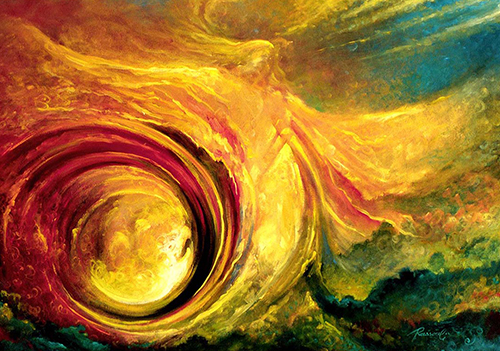
Days Three & Four : Moving Inwards to Ourself
Within Chapters three and four we learn that God’s reflection is within each of us, we are wonder and beauty of His Creation and that our soul, through our mind, has a threefold power to sense God’s spirit within us. Bonaventure says:
Here the light of truth, as from a candelabrum, glows upon the face of our mind, in which the image of the most blessed Trinity shines in splendour. Enter into yourself, then, and see that your soul loves itself most fervently … From this you can observe, not with the bodily eye, but with the eye of reason, that your soul has a threefold power2 Consider, therefore, the operations and relationships of these three powers, and you will be able to see God through yourself as through an image …”
2 In today’s terms we would probably consider these three powers to be our understanding, knowledge and memory.
Here we learn that by looking in on ourself we can see we are the spiritual beauty of God’s reflection. Bonaventure explains that our mind has Trinity, or threefold, of capabilities:
Memory – to help us live in the here and now with the ability to remember the past. To use our past stories to understand our present moments, to help better our tomorrows. Memory is also the ability to imagine and that helps us transcend time which is an aspect we share with God. In terms of God’s Holy Trinity we could consider our memory as Eternity, The First Principle, God the Father.
Intellect – helps us understand, question and reason with ourselves, others and the world around us in relation to truth and what is right and good. Intellect helps us removes our masks and stand naked before God as our authentic self, as who we really are. Our intellect represents the image of truth, understanding the right way, in terms of trinity intellect is The Image – Our Brother – Jesus Christ.
Will – Bonaventure groups deliberation, judgement and desire together – what today we would consider to be our will. Will is about the choices we make, to make choices we need to understand our decisions and have an enquiring mind, Bonaventure explains “For I do not know that a certain man resembles Peter unless I know Peter or have some acquaintance with him”. He goes on to say “nothing is higher than the human mind except Him alone who made it. Therefore in judging, our deliberative power touches the Divine Laws…” Our will is part of our free will to share God’s freedom, it is our YES decisions and our NO choices. In relation to the Holy Trinity our will can be considered that element which flows between Memory and Intellect and represents, the flow of truth between God the Father and God the Son, as so it is the gift of Holy Spirit.
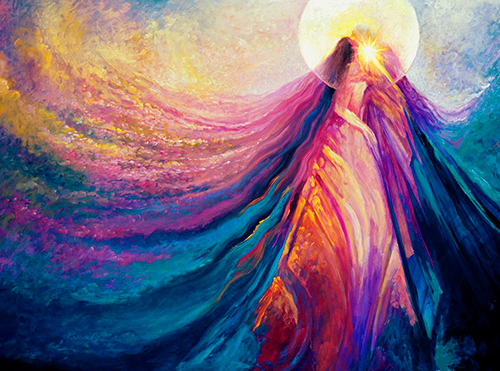
Day four includes how we can be formed or “re-formed” by God’s Grace. Saint Bonaventure’s words say that only a few of us are aware “that God is so close to our souls” and that God dwells within us. He explains that this is because we can become distracted by our sensory ability [sight, touch, taste, hearing and smell]. He explains that “clouded by sense images” we forget to use our intelligence and do not examine ourselves to find the “desire for inner sweetness and spiritual joy” and so the mind “cannot re-enter into itself as into the image of God’. Bonaventure tells us;
Therefore, if we wish to enter again into the enjoyment of truth as into paradise, we must enter through faith in hope and love of Jesus Christ, the mediator between God and men. The image of our soul, therefore, should be clothed with the three theological virtues, by which the soul is purified, illuminated and perfected … when by faith the soul believes in Christ as the uncreated Word and Splendour of the Father, it recovers its spiritual hearing and sight, its hearing to receive words of Christ and its sight to view the splendours of that Light. When it longs in hope … it recovers through desire and affection the spiritual sense of smell. When it embraces in love the Word Incarnate … it recovers it senses of taste and touch.”
What Bonaventure is telling us is that our souls are immersed in sensory experiences and desires of the body and that these prevent us from seeing and knowing we are made in the image of God and that He dwells within us. Our senses [emotions and physical – internal and external] dent our ability to chose well and make good choices, when we allow these senses priority we become ego-centric and the tendency of sinful actions becomes stronger. It is our willingness to enter into God’s Grace that helps us to break through. His spirit helps us to see that our choices must be better. To avoid sin we must become “clothed in the three theological virtues” [faith, hope and love/charity], we can then be “purified and enlightened”. Through “devotion, admiration and exultation” our soul remembers its spiritual senses [rather than being overwhelmed by bodily senses] and we become better able to embrace goodness and truth.
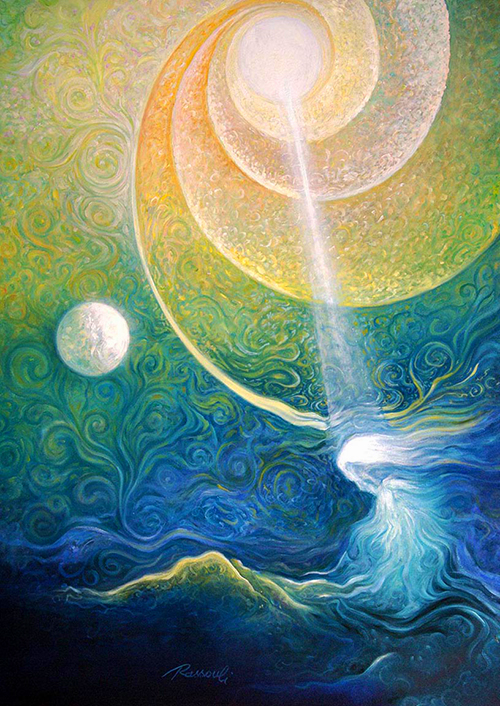
DAYS Five & Six : Moving Above ourself
Chapter Five of The Soul’s Journey into God commences with “We can contemplate God not only outside us and within us but also above us; outside through His vestiges [His traces or fingerprints], within His image and above through light which shines upon our minds.” On day five of the journey we are asked to consider who God is, what is His Being? And on day six to contemplate the Divine Trinity of Goodness. God’s Holy Trinity – three in one, each have supremeness, they communicate with one another, they are made of the same substance [consubstantiality], they have the same likeness in nature. They are each of equal importance, they are co-equal, they are co-eternal and have supreme intimacy flowing to and from one another. And yet they are one Divine Being “totally present everywhere and nowhere contained … immense and infinite without bounds, supremely one and yet all-inclusive, containing all things in Himself, being all power, all truth, all goodness.” Bonaventure explains when we’re able, or if we’re able, to comprehend the Trinity it is the perfection of our mind’s illumination, we will know what is good.
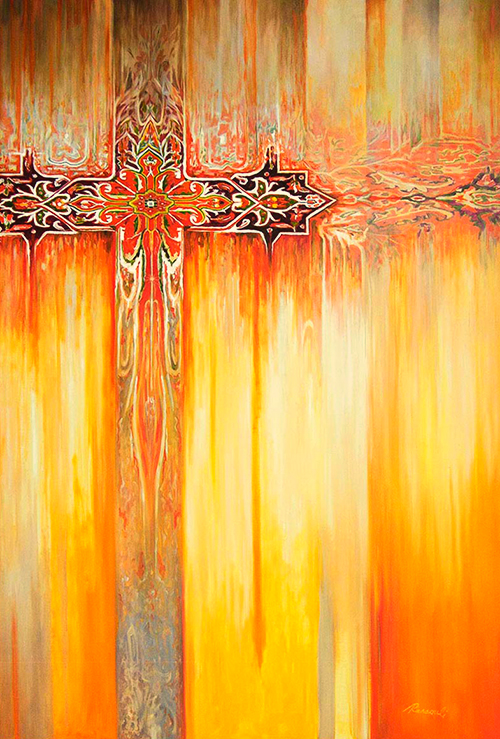
Day Seven : Rest & Understanding
The final day of the Mind’s Road to God is about rest, resting the intellect of the mind “little importance should be given to inquiry, but to unction [emotions]; little importance should be given to the tongue, but much to inner joy; little importance should be given to words and to writing, but all to the gifts of God, that is, the Holy Spirit; little or no importance should be given to creation, but all to the creative essence, the Father, Son and Holy Spirit.”
Day seven is about faith as St Francis understood it, that is spiritually and with feeling. It’s about allowing ourselves to be with God without over-thinking or analysing, just being in His presence as everything shines forth from Divine goodness and love. Day seven is concerned with finding our own unity with God by grace and not instruction, desire and not understanding, by prayer and not diligent reading, through Spouse not the teacher, God not man. Bonaventure tells us we must “give over” or “die to the self”, to be less of our own self allowing more of God to be within us and this is an emotional feeling not intellectual knowledge. It is dwelling with the love of God’s Holy Trinity. A dance of divine expression.
“Let us, then, die and enter the darkness; let us impose silence upon our cares, our desires and our imaginings” are some of the final words of The Soul’s Journey into God, which remind me of Psalm 46:10 “Be still and know that I am God”. Today this Psalm is often used in Centering Prayer to help quieten intellect and emotionally build up our relationships with God, in centering prayer the mind can be helped to relax and the body to emotionally feel by slowly saying and feeling:
Be Still and Know that I Am God
Be Still and Know that I AM
Be Still and Know
Be Still
Be.
The final word’s of St Bonaventure in this book are:
With Christ Crucified
let us pass out of this world to the Father Jn 13:1
so that when the Father is shown to us
we may say with Philip:
It is enough for us.Jn 14:8
Let us hear with Paul:
My grace is sufficient for you. 2 Cor 12:9
Let us rejoice with David saying:
My flesh and my heart have grown faint;
You are the God of my heart,
and the God that is my portion forever.
Blessed be the Lord forever
and all the people will say:
Let it be; let it be.
Amen
Ps 72:26 & 105:48
Credit : Images – Freydoon Rassouli






